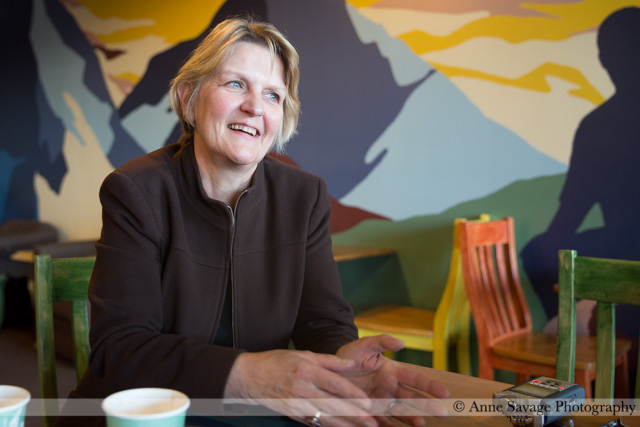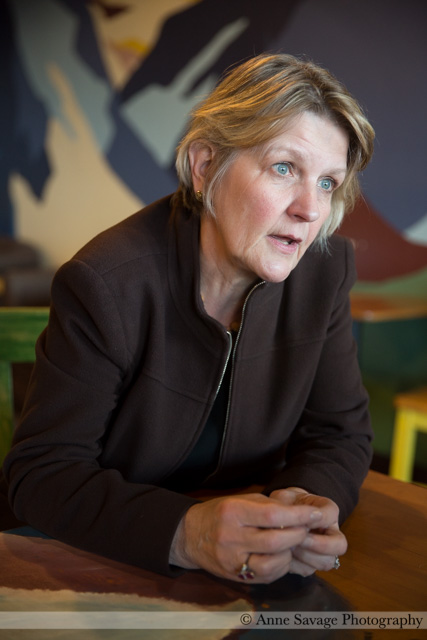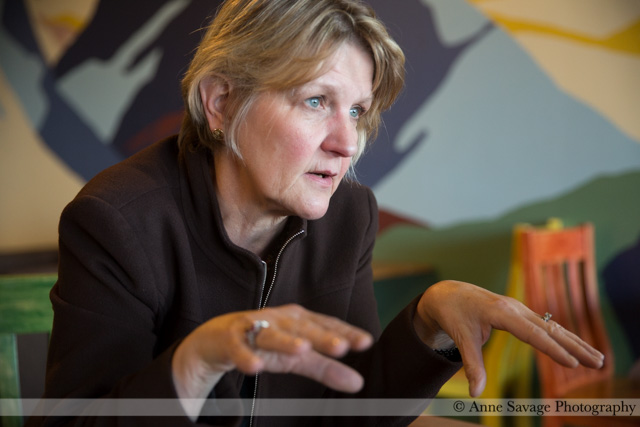There are two judicial races on the ballot this year in Washtenaw County. One is for Probate Court. You can read my interview with Tracy Van den Bergh who is running in that race HERE. The other is for the Circuit Court.
Veronique Liem is one of the people running for the Circuit Court seat. Her progressive values and concern for victims of domestic assault as well as children in family law cases have earned her my personal endorsement. As I wrote in my endorsement statement, “As a community organizer in Washtenaw County and someone who follows progressive issues closely, I am committed to supporting candidates who represent my views. Veronique Liem is passionate about the issues that I care about so I am proud to endorse her for Circuit Court judge and know that her experience and approach to law make her the ideal candidate for this position.” You can learn more about Veronique Liem at her website HERE.
I sat down with Veronique last weekend to discuss her candidacy. Here is our interview.

Let’s talk a little bit first about what a Circuit Court Judge does. I don’t think most people really know or understand that.
Well, generally speaking, the Circuit Court has jurisdiction over the most serious criminal cases. Felonies and more serious misdemeanors. All the monetary claims above $25,000 and that would include employment termination cases, medical malpractice cases, personal injury, business disputes, contract disputes, and real estate kinds of cases.
Is it exclusively Washtenaw County then? It’s a county position, basically.
Yes. It also covers all of the family law cases. Divorce, custody, paternity, and all of the personal protection orders. And, finally, appeals from the District Courts. That’s pretty much the scope of the Circuit Court.
That’s a busy court. How many Circuit Court judges are there?
There are five Circuit Court judges and then there are two Probate Court judges. In Washtenaw County we have the unified trial court so there can be some overlap between the two courts.
And how long is the term?
The term is six years.
Tell me about your background and how you got to the point where you’re running for this position.
I was born in France and I came here about 40 years ago. I got an MBA at the University of Michigan and then worked for about six or seven years in finance management and strategy planning, mostly at St. Joseph’s Hospital and for a year at the Burroughs Corporation which is now Unisys. Along the way, I decided to become an attorney and so I went to law school at U of M. When I graduated, I worked at Honigman, a large law firm in Detroit for a couple of years. Then I had my first child and I left the big firm.
I actually took some time off after that and then worked part-time for many years, building up my own practice. About four years ago I joined a firm again and now I’m with Smith, Haughey, Rice, & Roegge.
Practice is significantly family law but I also do a fair amount of other Circuit Court cases like commercial business litigation, some employment cases. I’ve done real estate and a few personal injury cases. I have done some appeals to the Michigan Court of Appeals and to the Supreme Court and federal court, as well.
So I would assume you’ve appeared in Circuit Court as an attorney at times?
Yes, quite a bit. I am a litigator although in family law I encourage people to be cooperative and not to litigate. But sometimes you have to.
Why did you decide to run for Circuit Court judge? What brought you to that decision?
 Well, I thought about running about seven or eight years ago but the idea of campaigning seemed to be a bit unrealistic to me at the time. So, I did not really pursue it. But, about a year ago, maybe a bit more, an attorney and mediator, someone who is also an activist who I respect a great deal, Dick Sobel, he approached me and asked me to run. I spent the following three months really assessing again whether or not I wanted to do that, and why. I also waited a bit to see what the docket would be like because I knew the judges were likely to announce the docket in advance. It turned out that the docket is really a good fit for me.
Well, I thought about running about seven or eight years ago but the idea of campaigning seemed to be a bit unrealistic to me at the time. So, I did not really pursue it. But, about a year ago, maybe a bit more, an attorney and mediator, someone who is also an activist who I respect a great deal, Dick Sobel, he approached me and asked me to run. I spent the following three months really assessing again whether or not I wanted to do that, and why. I also waited a bit to see what the docket would be like because I knew the judges were likely to announce the docket in advance. It turned out that the docket is really a good fit for me.
What do you mean by the type of docket?
The docket is what kinds of cases that the new judge will hear. In this case it is primarily family law cases. Given that I have a specialty, a strong specialty, in that area, that made it a very good fit. So I decided to run because I feel I can make a difference. I have a lot of experience that I can put to good use to help people in the community.
Are there changes that you would like to see in the Circuit Court? Things that you feel you could improve?
Yes. Again, I’m looking at the new judge hearing primarily family law cases and personal protection orders. I would like to see, for example, protections for victims of domestic abuse who have to come to the courtroom. I’d like to see as many protections as possible to prevent them from having to run into the assailant as they come in. Maybe staggered arrival times. Separation within the courtroom so that they don’t have to face each other directly. Perhaps if there is a need for one to question the other, as a judge, if I am elected, would serve as an intermediary to do the questioning so that it’s not so threatening and frightening.
Have you seen instances where that has been a problem?
Yes, I have. It can be very intimidating. I’ve had clients who had a PPO or who had been seeking a PPO, or just in a divorce where there has been domestic violence where that was a problem.
My mother went through that when I was a child and it IS intimidating to have to deal with the guy who beat the hell out of you.
And also for you as a child it’s very difficult. That’s another thing is that I would be very mindful about what it’s like for the children. So, when you have to make decisions that affect children when there has been domestic violence, you look at the case very differently. You realize that the interactions can be very damaging.
Other things I would do, for example, I have always been a big proponent of cooperative methods like mediation. I am a collaborative divorce and I would really encourage people to look at that. It’s a little more tricky when there’s been domestic abuse and violence because the context is difficult and there’s a fair amount of control on one side and fear on the other. So, those methods may not work, especially in more serious cases. It works in some, though, if you have good attorneys and you keep people in separate rooms and you stagger arrival times and all of that.
But, generally speaking, I think they are good methods, especially for children, if people can cooperate in resolving things. So, I would really encourage people to do that. I would educate people about the damage of litigation, especially custody litigation. I think it really helps kids and helps families because it makes it so difficult for people to co-arent once they’ve been testifying about all of the bad things about the other person. And then you need to co-parent? It’s not easy. So that’s another area where I would really like to make a difference.
I’m always interested in new ways of doing things. For example, right now the Peacemaking Court I think has potential in a number of areas like the juvenile docket, the family law docket. I would want know more about that.
I’m not familiar with that.
Judge [Timothy] Connors started it as a pilot court project. It’s inspired by tribal Indian ways of resolving problems and disputes. It involves all of the community of the person or the victim and tries to find a resolution that addresses all of the different groups involved. And it’s aimed at rehabilitating, too.
Another area I’m interested is that, as a judge, I would want to be a resource to people and to have a lot of resources that I could give to people who need to deal with addiction, mental health issues, housing, employment, you name it.
You’ve been pretty open about your political views and that you are a Democrat. Has that helped you or hurt you? I think a lot of judicial candidates and judges try not to be that open.
Well, I’m open about it in the sense that, if people ask me what my political views are, I tell them. As a judge, of course, I would follow the law and have to implement the law. But, as a person, I’m a Democrat. I think people have a right to know so, if they ask me the question, I answer it. But, I am a Democrat and I have a record of contributing to Democratic parties, so there’s a public record.

You’ve been endorsed by quite a few Democratic groups which certainly shores up your credibility that’s very Democratic.
The courts are difficult for people to make decisions on when they are voting because I don’t think they understand why it’s important for someone to choose one person over the other. If you were going to contrast yourself to your opponent, Pat Conlin, are there any points of contrast that you would point to?
Yes, I think, we are actually quite different as candidates. First, I think I have more experience than my opponent. Not counting the years I took off not working as an attorney, I have been practicing or 25 years in various facets of the Circuit Court. I think he has done quite a bit of work in District Court, but I don’t think he has as many years practicing in Circuit Court.
I also don’t think he has as strong of specialty in family law. He does family law but he doesn’t do it with the intensity and maybe the degree of variety in cases or variety of clients. I have represented people from all over the world in family law cases. People who are poor, people who have a lot of income or assets. And I’ve handled a lot of complicated custody issues, as well. So, in terms of experience, I think I’m different.
I think I am also different because I have a business background and an MBA. I’m also different in terms of my focus on really involved professionally in family law, particularly with groups that promote new models. For example, I’m on the executive board of the Collaborative Practice Institute of Michigan because I really believe those are good methods. I am actively promoting them as part of that group.
You described yourself as a collaborative attorney. It sounds like that has a very specific meaning that’s just a description.
 Yeah, the “collaborative divorce” is a new method. Usually it involves mental health professionals, other specialties, perhaps financial specialists, in addition to attorneys. People who agree to follow that method sign an agreement that they’re not going to litigate their divorce. If they end up litigating their divorce, they have to change attorneys. So there’s a strong disincentive to work it out. It creates a paradigm shift. People can be more creative.
Yeah, the “collaborative divorce” is a new method. Usually it involves mental health professionals, other specialties, perhaps financial specialists, in addition to attorneys. People who agree to follow that method sign an agreement that they’re not going to litigate their divorce. If they end up litigating their divorce, they have to change attorneys. So there’s a strong disincentive to work it out. It creates a paradigm shift. People can be more creative.
Have you found it to be successful?
Yes. I have actually three cases right now and all of my collaborative cases have eventually settled. I haven’t had any that didn’t settle. It’s a relatively new method, I cannot say that I have done hundreds of them. But I’ve done probably 10-12 cases.
One other area where I am very different from my opponent is my life experience. I’m an immigrant. I come from another country. I came here and I had just enough resources to go to the university. Otherwise, I had no resources and no connections and I built my life on my own here. I’m running on my own merits. I’m running on my accomplishments. I’m not running on my family name or my grandfather or father or uncle. I’m running based on who I am and what I’ve done and what I can do to help our community.
Are there any things you’d like people to know about you that they might not already know?
Well, I’m a mom and I’m married. It’s my second marriage so I’ve been through a divorce. My parents were also divorced, so I know what it’s like to be a child of divorced parents and what a child may feel. That is why I am very concerned about wanting to protect children who are caught in their parents’ custody cases. I think my life experience, in addition to everything else, is a good fit to understand what it’s like.
All photos by Anne C. Savage, special to Eclectablog



